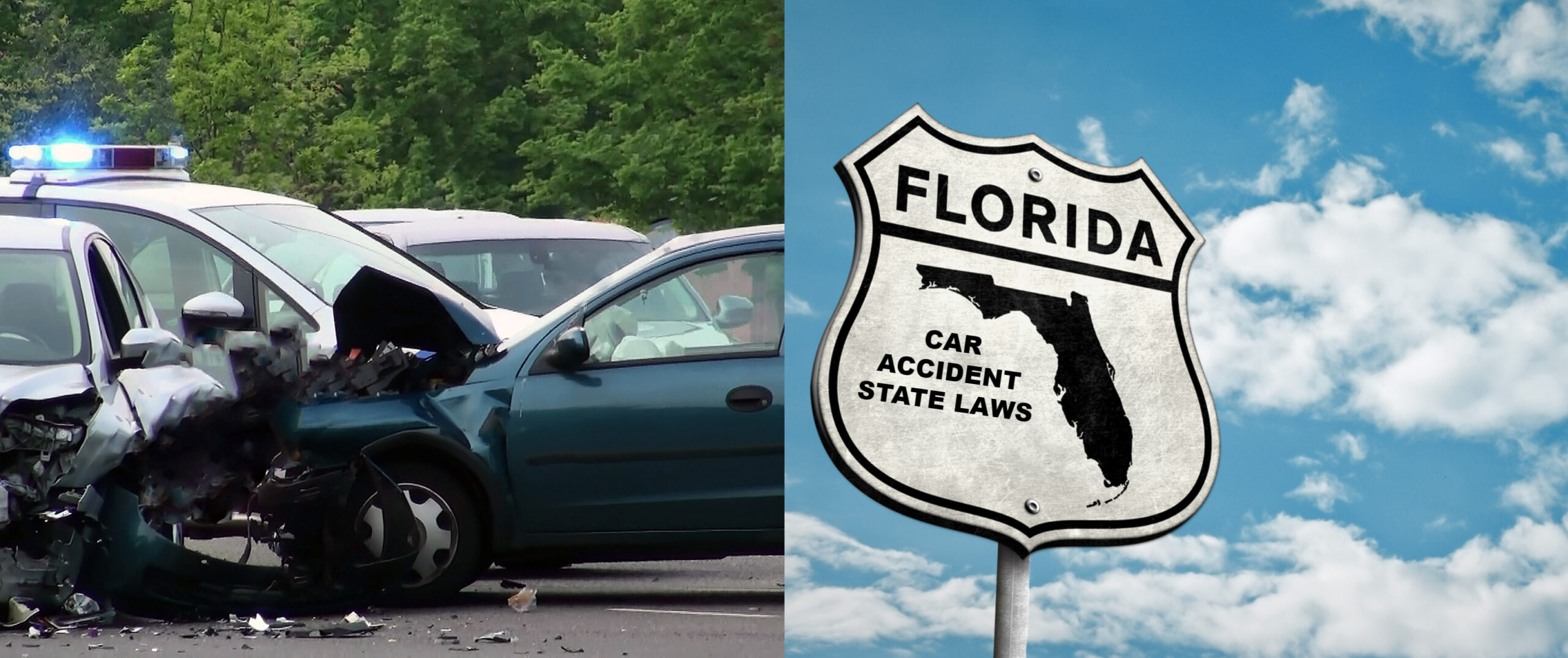Car Accident Laws in Florida: Everything You Need to Know
Car accidents happen every day, and Florida drivers should be aware of the state laws that pertain to auto injury cases. Understanding what you need to do after a car accident and the laws that may impact a future claim is important. Here are the main Florida auto accident laws that drivers should be aware of.
Minimum Insurance Requirements:
All drivers in the state of Florida are required to carry the following insurance requirements:
- $10,000 per individual and $20,000 per accident for bodily injury
- $10,000 per accident for property damage
- $10,000 for personal injury protection
- $10,000 per individual and $20,000 per accident (uninsured motorist coverage)
You should keep in mind that Florida’s financial responsibility law may have higher requirements for certain types of motorists based on their driving history. If a driver has been convicted of DIU or had their license revoked because of repeated offenses, they may be required to carry full liability insurance.
Car Accident Statute of Limitations in Florida:
One of the most important laws you need to know about car accidents is the statute of limitations of the state where the crash occurred. The statute of limitations for car accidents in Florida is four years, and they start counting from the date of the crash. In other words, if you’re thinking of filing a car accident claim in Florida, you need to do it within four years of the day when you got injured. There are rare exceptions that may extend the deadline, but it is best to consult with an attorney to see if they apply in your case.
Florida’s No-Fault Car Insurance Law-
Florida is a no-fault car insurance state which means that after a car accident, regardless of who caused the crash, you usually need to turn to your own insurance company and file a claim under your personal injury protection coverage to get compensation for your financial losses and medical bills. In certain cases, you can file a claim directly against the at-fault driver, but you need to consult your lawyer.
Exceptions include permanent injury, significant or permanent scarring or disfigurement, a significant and permanent loss of an important bodily function, and death. Another exception to the no-fault rule is if the accident’s damages exceed the $10,000 threshold. In this case, you can sue the at-fault driver for the expenses that were not covered by your personal injury protection coverage.
When Should an Auto Accident Be Reported in Florida?
Under Florida auto accident laws, all drivers are required to report any auto accident they have been involved in if the crash resulted in injury, death, or apparent property damage of at least $500. If the accident occurred within a municipality, motorists are required to report the accident to the local police department. If the crash happened outside of a municipality, drivers must report the accident to the nearest office or station of the Florida Highway Patrol or the office of the county sheriff.
Comparative Negligence in Florida Car Accident Cases:
According to Florida laws, the degree of negligence of all involved parties in the accident should be considered to determine liability. If the other driver was entirely at fault for the accident, their insurance carrier would have to pay your compensation (including medical bills and lost wages).
However, when both (or all) parties have a partial fault for the accident, things are a little different. Florida has the so-called “pure comparative fault” rule that applies if both parties share the blame for the accident. When that happens, the jury will be asked to calculate the percentage of fault that belongs to each party and the total dollar amount of the plaintiff’s damages. Under this rule, the plaintiff’s compensation is reduced by the percentage of his or her share of fault.
For example, if the jury decides that your total damages award should be $80,000, but the jury also determines that you are 40 percent responsible for the accident, under Florida’s comparative fault rule, you are entitled only to 60 percent of the $80,000 total. In other words, you should receive $48,000. You need to keep the pure comparative fault rule in mind when you’re filing for a car accident claim in Florida.
Looking for an auto injury attorney in Florida? Legal Chiefs has you covered!

